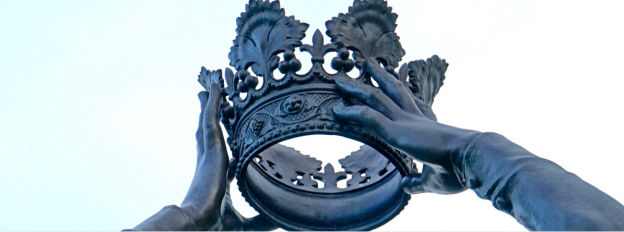The Book of Proverbs teaches that pride goes before destruction, a haughty spirit before a fall (16:18, commonly shortened to “pride goes before a fall”). More than enough events in history and our lives prove how true this statement is. Likewise, prejudice against those different to us is an ever present truth in this fallen world.
In this passage, we see the tragic consequences of pride and prejudice (sorry Jane Austen). Ephraim’s pride, combined with Jephthah and Israel’s prejudice against Ephraim, lead to a further tragic event overshadowing victory over Ammon. It reminds us to check our pride at the door and adopt the same humility Christ demonstrated in redeeming us, and warns us of the dangers of prejudice.
Jephthah’s victory over Ammon was tarnished by his foolish vow, and the death of his daughter. The sacrifice of Jephthah’s daughter turned to tragedy, and brought sorrow to joy.
Sadly, this was not the end of things for Jephthah, or Israel. Their moral and religious decline had brought internal strife and civil war during the time of Abimelech, and things had not improved with the passage of time.
When Gideon defeated the Midianites, the tribe of Ephraim were upset that he did not call them up earlier (ch. 8). The Ephraimites were primarily interested in their status. After Jephthah defeated the Ammonites, the Ephraimites “were called to arms” (12:1).
Their target was not the Ammonites or the Philistines, but Jephthah. “They crossed to Zaphon and said to Jephthah, “Why did you cross over to fight against the Ammonites and did not call us to go with you? We will burn your house over you with fire” (v.1).
The Ephraimites were annoyed that Jephthah had fought the Ammonites without consulting or including them in the glory. They were important, and important people need to be respected, or else bad things happen.
Jephthah had grown up an outcast, and knew what it was like to be unimportant (11:1-3). It seems he had little interest in stroking the egos of the self-important, such as Ephraim. Instead, he pointed out that he had indeed asked for their help, which they had not provided (v.2-3). Jephthah had been left to do it by himself, with God as his strength (v.3).
Perhaps Ephraim was seeking an apology, or some flattering words like Gideon had previously offered them to make them feel more important than they were (8:1-3). Jephthah was a straight-shooter though, and did not give them what they wanted to hear. So Ephraim insulted Jephthah and his followers as being “fugitives of Ephraim, you Gileadites, in the midst of Ephraim and Manasseh” (v.4). Then the fight started.
Jephthah and his company of soldiers attacked Ephraim, then captured the fords over the River Jordan, cutting Ephraim off from their homes (vv.4-5). Then, they used the particular regional accent which had developed on the eastern side of the Jordan to identify the fugitives.
Like a Kiwi Southlander who cannot help but roll the r in a phrase like “purple shirt”, the Ephraimites could not say Shibboleth (flowing stream) like an Easterner, where the “s” had become a “sh”.
When the poor Ephraimite fell into the diabolical dialect trap, “they seized him and slaughtered him at the fords of the Jordan” (v.6). Through this scheme, 42,000 men of Israel, from the tribe of Ephraim, died at the hands of the Judge of Israel.
No surprise then that Jephthah’s period as Judge was neither long nor especially peaceful. Jephthah judged Israel for six years, before he died and was buried in his hometown (v.7). In his wake, victory over Ammon, but a short time of leadership, the end of his family line because of keeping his foolish vow, and more internal conflict within Israel.
Ultimately this episode serves as a judgement on Jephthah for the sacrifice of his daughter. But this does not let Ephraim off the hook.
Ephraim wanted to lead. To be Top Dog. Their desire for status (ch. 8) was stroked by Gideon, but their pride led to their destruction in Jephthah’s day. There is no place for pride and status in Christ’s Church. None of us are the centre of salvation’s story; Jesus is. None of us are better than each other. We all have different gifts and contributions to make so the body functions (Romans 12:4-8).
Likewise, prejudice should have no place in God’s People. Ephraim looked down on the other tribes. The other tribes looked down on Ephraim as big mouths, absent when the fight came.
Prejudice exists in the Church too. In some places from income, ethnicity, or education. Sometimes, shibboleths exist based on particular doctrinal points. Differences over say baptism or church government are real, but not enough to deny fellowship to a fellow believer.
Instead, our attitude should be that of Christ, who in humility became human and died on the Cross for our sins (Phil. 2:4-11). Pride and prejudice fall away when we worship and follow the example of Christ, who redeemed us from our sins.


